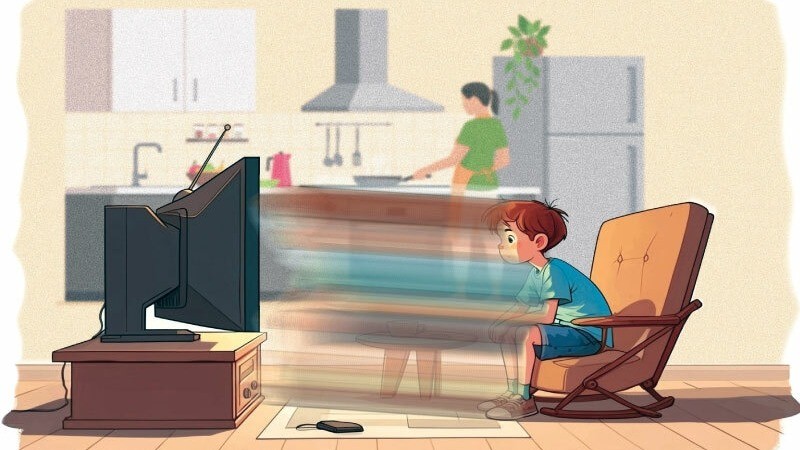Now Reading: Screen Time Trap: What Your Body Pays for Your Digital Life
-
01
Screen Time Trap: What Your Body Pays for Your Digital Life
Screen Time Trap: What Your Body Pays for Your Digital Life

From smartphones to laptops and endless scrolling on social media, screen time has become a huge part of how we live, work, and relax. But behind the convenience is a slow toll on the body—especially in Tier‑2 cities, where digital life is catching up rapidly but awareness is still playing catch-up. The problem isn’t just the screens—it’s how much we depend on them without realising what our body is going through.
Neck, Back, and Eye Strain Are Just the Start
Staring at screens for long hours can lead to something called “tech neck”—stiffness and pain caused by bending your neck downward for too long. Add to that poor sitting posture and long sitting hours, and back pain becomes a daily companion.
Your eyes too feel the impact. Constant exposure to blue light causes dryness, fatigue, and blurry vision. Many people in smaller cities working remote jobs or studying online are reporting more frequent headaches and tired eyes.
Sleep Gets Disrupted
Scrolling reels or watching videos late into the night affects your sleep cycle. The blue light tricks your brain into thinking it’s still daytime, making it harder to fall asleep. Over time, irregular sleep leads to low energy, reduced focus, and irritability.
In places with fewer offline entertainment options, people—especially students—turn to screens as their only escape. But this digital comfort is quietly throwing their body clocks off balance.
Mental Fatigue Disguised as Laziness
Too much screen time doesn’t just drain the body—it dulls the brain. Switching between apps, constant notifications, and doom-scrolling reduce attention span and mental clarity. The result is a foggy head and a feeling of being tired all the time, even without physical exertion.
This mental fatigue is often mistaken as laziness or lack of willpower, but it’s actually your brain begging for a break.
Social Withdrawal and Less Movement
Digital life has made real-world interactions optional. Many people now go days without face-to-face conversations or any meaningful physical activity. This isn’t just bad for social health, but also reduces motivation to move, walk, or exercise—things your body needs to stay functional.
Tier‑2 cities that once had active evening cultures in parks and markets are slowly seeing more people glued to screens at home.
Conclusion
Too much screen time doesn’t just waste your time—it quietly drains your health. Headaches, back pain, poor sleep, and constant fatigue aren’t always signs of illness—they’re often signals your body is sending to cut down on digital dependence. Small breaks, mindful usage, and returning to real-world habits can make a big difference. Your body is always talking. The question is—are you listening?

























